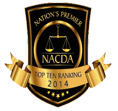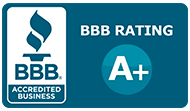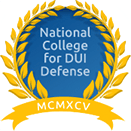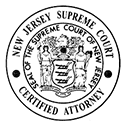Juvenile Criminal Offense in Plainsboro New Jersey
Young people have their whole lives ahead of them. They are full of potential and possibilities. While adults have already made certain life choices, a juvenile still has the time to explore all types of avenues and make life what they want it to be. That is why it is particularly sad when a young person has a lapse in judgement and is charged with a juvenile criminal offense in Plainsboro New Jersey or anywhere else in the state. Statistics show that once a juvenile is incarcerated for an offense, the chances that he or she will finish high school decrease, and the chances that he or she will be incarcerated as an adult increase. If your son or daughter has been charged with a juvenile offense, you need an experienced juvenile law attorney to help them avoid the pitfalls of a conviction. The Law Offices of Jonathan F. Marshall is the largest criminal defense firm in Middlesex County with eight criminal attorneys on our team. Our lawyers have top-notch credentials practicing in the Middlesex County Juvenile Court for over 100 years combined. A lawyer on our staff will protect your child against a juvenile conviction. Give us a call at 732-246-7126 for a free consultation to discuss the process and how we can help you.
Plainsboro Juvenile Charges Our Lawyers Defend
- Marijuana Possession
- Distribution of CDS
- Burglary
- Simple Assault
- Aggravated Assault
- Robbery
- Terroristic Threats
- Weapon Possession
- Sexual Assault
- Shoplifting
- Harassment
- Receiving Stolen Property
Working Through the Juvenile Justice System
In order to make good decisions on your child’s Plainsboro criminal charge, you need to understand some important aspects of New Jersey’s Juvenile Justice process.
- “Delinquency” vs. Crime. When a child commits any offense, whether it is an indictable crime, a disorderly persons offense, or municipal ordinance violation, the child is considered to be “delinquent,” not criminal.
- Family Court vs. Criminal Court. The first important aspect to a juvenile case is that the court handling a juvenile matter is not a criminal court. Rather, it is considered a “juvenile delinquency action” that is handled in the Family Division of the Superior Court, otherwise known as family court. In addition, unlike criminal court, a judge decides all juvenile cases. There is no jury in family court.
- Attorney must represent the child. Every child facing a juvenile delinquency action must be represented by an attorney. That means that you must retain counsel for your child. If you cannot afford an attorney, you can inform the court and the judge will appoint a public defender for your child.
- Police questioning of your child. The police may not question a child about an offense unless a parent or guardian is present. Only in exceptional circumstances, and where a guardian cannot be located, will the police be permitted to question a child about a delinquency matter.
- Detention of a child. The juvenile system does not have a right to bail. Accordingly, at the time a charge is filed, a decision must be made as to whether the child will be released to his/her parents or detained in a juvenile detention center. The determination is based on the seriousness of the offense, whether there is a history of failure to appear in court, and whether a person’s safety would be at risk if the child were released.
- Waiving up to Adult Court. In certain situations, a prosecutor may wish to try a child as an adult based on the seriousness of the offense. That is something your attorney should dispute as aggressively as possible, particularly because the penalties are more severe in Adult Court.
- Possibility of diversionary programs. There are a number of ways in which your attorney could attempt to have your child’s case diverted for resolution away from the courts. For example, an attorney can intervene and secure a station house adjustment. There is also the possibility of securing a deferred disposition which avoids a record of conviction. A Juvenile Conference Committee may also be enlisted to avoid formal juvenile proceedings.
Penalties for Juvenile Offenses in Middlesex County
A juvenile offense can result in serious penalties despite being handled in Family Court. A sentence of up to one year detention may be imposed for a fourth degree crime, two years for a third degree crime, three years for a second degree crime and four years for a first degree crime.
Plainsboro Juvenile Lawyer
The best strategy to protect your child if he or she is charged with a juvenile offense in Plainsboro is to retain an experienced juvenile crime lawyer. The Law Offices of Jonathan F. Marshall employs several attorneys who have been practicing extensively in the juvenile court, including a former member of the Middlesex County Prosecutor’s Office. Call our offices today at 732-246-7126 for a free initial consultation with an attorney who is knowledge in all facets of juvenile defense. Lawyers are available 24/7 to speak with you and answer any questions you have.













